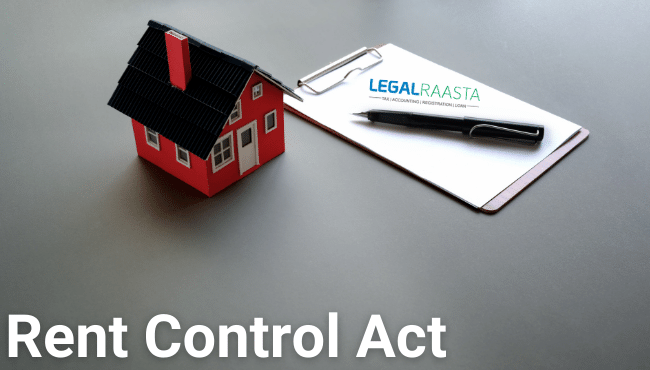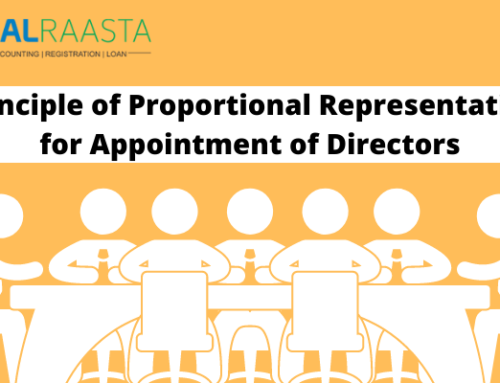In India, Rent Control Act governs the provision for the control of rent, insurance of privileges of landowners, and the privileges of tenants.
The rent control statute defines “rent” as any money owing. Under or in connection with an oral or written agreement relating to the occupation or use of premises, including the amount of rent, charges for services rendered.
Introduction to the Rent Control Act
Contents
- Introduction to the Rent Control Act
- Latest Amendment Delhi Rent Control Act
- Delhi Rent Control Act 1995
- Delhi Rent Control Act 2016
- Delhi Rent Control Act 2020
- Rental agreement
- Rights of a tenant
- Rights of a landlord
- How about we investigate a portion of the key arrangements made with the Delhi Rent Act.
- Delhi Rent Control Act: Key provisions
- Exclusions:
- Non-Applicability of the Rent Control Act
In 1948, the legislature formulated a central Rent Control Act. It oversees the letting of a property’s standards and ensures that neither the landowners nor the renters’ rights are exploited by the other. Each state has its own Rent Control Act. However, to a great extent like one another, they convey some minor contrasts.
Because the 1948 Act is very severe and favorable to occupants, the housing market has experienced issues in filling in certain spaces. There are a few properties that have been let out that are as yet paying a similar measure of rent since 1948, ignoring expansion and expanded property valuations.
Latest Amendment Delhi Rent Control Act
The Delhi Rent Control Act does not regulate the rental of land properties. Tenants and landowners both had rights and obligations, and they followed the established laws and guidelines. The Delhi Rent Act was created to keep rents under control, prevent evictions. It also provides affordable housing to the city’s most vulnerable residents.
Since 1958, to incorporate a time component the act has been changed. After receiving the primary official adaption in 1958. Property owners and, on rare occasions, tenants have expressed a continuous desire for changes to the code. From that time forward, the concepts and guidelines of the Delhi Rent Control Act Bare Act have been changed. Why don’t we look into the major amendments to the Delhi Rent Control Act of 1958?
Delhi Rent Control Act 1995
A tenant can request a duplicate of the rental understanding by law.
The primary change in Delhi Rent Act got going in 1988, with Delhi Rent Control (Amendment) Act. As per area 3(c) of the Delhi Rent Act 1995, the premises with month-to-month rents. Surpassing ₹ 3,500/ – wouldn’t fall under the past rent act of 1958.
The tenants gained rights toward the property and the furthest down the line alterations didn’t influence the rights the tenants previously appreciated with the Delhi rent Control Act 1958.
Section 14 of the Delhi Rent Control Act prohibits property managers from taking legal action against a renter based on illegal belonging. If the tenant’s lease has expired yet he or she remained on the premises.
Delhi Rent Control Act 2016
In March 2016, there was a far and wide worry of property managers removing tenants on grounds of an exceptional arrangement in the Delhi Rent Control Act 1958.
There was an interest in characterizing similar difficulty in the act. Evacuation of outline technique for the territory of Delhi, and one specific landowner not being qualified to document. A bonafide expulsion for more than one property under their name in a similar city.
The accumulated gatherings requested an adjustment of the Model Tenancy Act to give similar advantages to business tenants as it gave to private tenants. In any case, the requests couldn’t take the state of a correction.
Delhi Rent Control Act 2020
Delhi Rent Act 1958 was altered to define Delhi rent Control act 2020 with the Model Tenancy Act, 2019. This is the most recent alteration in Delhi Rent Control Act. The Model Tenancy Act plans to set up a positive relationship of trust between the property manager and tenant
To keep up with the whole land framework and keep a positive connection between the tenants and landowners, enrollment and shaping a contract become necessary. The authority is liable for keeping up with the records for the rent and span of the tenure. The first copy should be given to the renter and the second copy should be given to the rent control authority.
If there should be an occurrence of lapse of the set time of tenure, with comparable agreements, it will be recharged on a month-to-month basis. As indicated by Section 22, Delhi Rent Act, 2020, a tenant will stay a tenant by law under these conditions and will be responsible for rent commitment towards the property.
Delhi Rent Control Act 2020 likewise saw a covering on the high furthest reaches of safety expenses requested by the property manager against rented properties. In the case of commercial premises, a security deposit of up to two month’s rent can be asked. For non-private property, a security deposit of one month’s rent can be asked.
Rental agreement
In India, renting or letting out any property for private or business purposes is subject to a variety of rules and regulations. For instance, – It is an unquestionable necessity under the law for the two parties to have a written agreement outlining all of the arrangements of possession.
In the following instances, an agreement formed without being openly and carefully recorded will not be considered a significant contract:
- Any progressions paying little heed to the kind of correction should likewise be explicitly stated.
- The agreement should be signed and dated by both parties, such as the landowner and the tenant.
- It is necessary to come in and enroll the understanding.
- Without a legitimate rental arrangement, the rights and obligations of the property manager and the tenant can’t be authorized or secured by law.
- As a result, enlisting the help of a legitimate practitioner is always a good idea. The establishment of such an agreement is fraught with complications, especially in the case of commercial rents.
Rights of a tenant
The Rent Control Act is in place not only to protect the landlord and their property but also to protect the renter. The Act gives the tenant a variety of essential rights, including:
- RIGHT AGAINST UNFAIR EVICTION: Under the Act, the landowner can’t remove the tenant without adequate explanation or cause. The guidelines of removal are somewhat different from one state to another. In certain states for the property manager to remove a tenant. He/she should move toward the court and get a court request for something similar.
- FAIR RENT: The landowner when letting out a house can’t charge uncommon sums in rent. The worth of the property determines the value of a rented property. If the renter considers the rent being demanded is high in contrast to the worth of the property. He/she might move toward the court to look for redressal. Normally, the rent is to be somewhere in the range of 8% and 10% of the worth of the property, including all expenses caused by means of development and installations on the property.
- ESSENTIAL SERVICES: It is the basic right of the (person or business who occupies a house, office, etc.) to appreciate basic groups of managers. For example, water supply, power, and so on. A landowner doesn’t reserve the privilege to pull out these groups of managers (without any concern about/having nothing to do with) whether the (person or business who occupies a house, office, etc.) has neglected to pay rent concerning an almost the same property or a different one.
Rights of a landlord
The focal point in a rental arrangement is consistently the property, and the property must be shielded from unjustifiable abuse. The Rent Control Act entitles the landowner with the accompanying rights:
- RIGHT TO EVICT: The option to expel a (person or business who occupies a house, office, etc.) is also different from one state to another. This means in certain states, the property manager might remove for individual and honest reasons. For example, needing to live there themselves. Such an explanation is definitely not an acceptable reason for kicking out in Karnataka. In general, the landowner should go to court to have the renter thrown out (of a house or apartment).
- CHARGE RENT: Being the proprietor of the property, the landowner has the option to tuition rent upon the tenant. Since there is no very establishment willing the furthest breaking point on the rent. The property manager might protract expanding the rent charges as per his desires. Consequently, the reasonable thing to do in such cases is to specify the measure of increment and the state of expansion in the rental wattle itself.
- TEMPORARY REPOSSESSION OF PROPERTY: The landowner may briefly repossess the property to work on the state of the property. Change the property in any ability (to hold or do something) or make changes to the property. Yet, such changes to the property should not carry any bad luck to the (person or business who occupies a house, office, etc.) or tangibly influence his occupancy.
How about we investigate a portion of the key arrangements made with the Delhi Rent Act.
Delhi Rent Control Act: Key provisions
“Landowner”: an individual qualified to get rent. Either for a distinct period for the benefit of themself or the particular proprietor of the property.
‘Tenant’ is the individual liable for paying the rent of the premises. This incorporates anybody and everybody living in the vicinity during the residency of the contract. Tenant additionally incorporates sub-tenant and if there should arise an occurrence of death. The individual is under lock and the key is subject to the request for progression.
Exclusions:
The act isn’t pertinent on government premises or properties.
The property manager has no consent or right to remove the tenant.
As far as a ‘standard rate’ the rent increase has been fixed.
The tenant has the arrangement to rent the level.
Non-Applicability of the Rent Control Act
There are sure situations where the Rent Control Act isn’t relevant when the property has been let loose. They are:
Property let loose to non-public restricted or public restricted organizations with a settled up share capital of Rs 1 crore or above.
Property let-loose or sub-let to public area endeavors, banks, or any enterprise found out under any state or central Act.
It is too unfamiliar with organizations, global missions, or worldwide offices.
Disclaimer: The items distributed are solely for data purposes. This website’s content does not constitute legal or professional advice and should not be relied upon. For these purposes, or as a substitute for legal advice from a lawyer licensed in your state.






